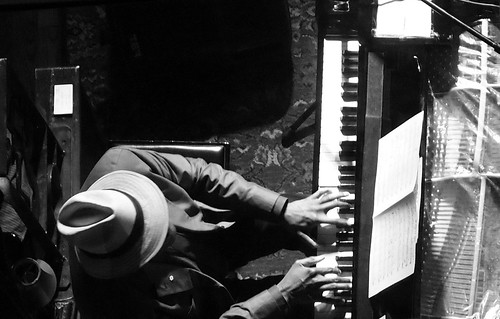
This time the weather was the coldest I’ve ever experienced in Wernersville. Until now, my times of retreat at the Spiritual Retreat Center were during Spring or Summer.
Stripped of leaves, color, and warm weather, the place seems monochromatic outdoors, but is still restful and precious to me. There are many prayer room options, a beautiful chapel, plus rooms for things like creating art, music, reading, or for meeting with others. Each place seems to wait for your arrival. Anyone can go there for the day without notice. I love that about it. That’s true hospitality. You are always received and welcome. You don’t need to be Catholic either. God is there in a special way and it’s a sacred place created solely for the purpose of divine communion and renewal. To me, that sounds just like Heaven.
Unless you get run over by a jet-powered lawn mower, but I’ll get to that in a minute.
The Center has recently added a prayer labyrinth (shown above). Many people aren’t familiar with labyrinths–their purpose or their gifts. They create the opportunity for reflection and spiritual awareness. Some (Evangelical) Christians bristle at the copious statues, candles, prayer mazes, and other unfamiliarities about a Catholic environment. I suppose I’m post-Evangelical: the richness of the Christian history and the solidifying sense of the sacred draws me toward the transcendent in a place like this. Every time in an unexpected way.
That’s what happens when you go there. You find God. You find God at the center. The center of you…in your core where he’s always been, because he’s everywhere-present and boundless in love. He’s been whispering things of love to you and smiling but you thought it was just bad pizza leftovers or something you made up to make yourself feel better.
Life is like a puzzle. A labyrinth is a puzzle. It’s a tool too. You can study a labyrinth before you walk the path through it, but while you are walking through studying it can make it far more confusing. Usually, you stop being stupid and cease trying to decipher the pattern precisely and just follow it like a child might do. This way, a labyrinth can be a lovely stilling and spiritual experience, not because of its own woo woo mystical powers (it doesn’t have that), but because it invites a traveller to concentrate and focus–to place her steps carefully. Most importantly, it forces one to slow down.
We don’t realize how fast our thoughts buzz until we get these sorts of opportunities to be careful. If you walk a labyrinth things mentally wind down and simplify to, “Stay on the path. Follow this narrow way. Pay attention.” Some enjoy walking very slowly and praying as their heart grows hushed.
Searching for the puzzle
I saw a photo of this newly constructed prayer walk inside the Center and I started to search for it outside. It was actually in plain sight but I hadn’t been looking for it, so I didn’t see it. (In case you haven’t figured it out by now, this true story doubles as an allegory.)
When I spotted it, a man driving a zero turn radius lawn mower was zipping and roaring around it, back and forth; expertly, but fast enough for me to wonder about his judgement. Crisp leaves shot into the air and the wind whipped them into little showers of bullets.
“That won’t work,” I said. “What am I suppose do? Have a peaceful prayer time as Zippy here shoots me with leaves and the mower engine drives me to distraction?” I crossed past the paved puzzle a small stretch to a gazebo with park benches set in a circle.
It was still noisy there, but the mower sounded duller. I would wait him out. I tried to settle my mind. Maybe I could do some warm-up praying. No. My thoughts swam. “Who’s Zippy now?” I thought.
Instead of waiting, I went on a short walk in the wood nearby over a little ridge. The path looked to have been crudely bulldozed recently and massive tree parts and 4 inch thick vines were crammed in piles. It was other-worldly–so many thickets covering whole sections like umbrellas, even though most of their foliage was missing. Surreal yellow leaves on the ground seemed day-glow bright. I felt like a zombie putting one foot in front of the other as I made my way around the wet earth and wild terrain. The humming mower served as a beacon to orient me. It was comforting and ironic.
Then a church bell snapped me back. It chimed 11, and I recalled how church bells were auditory calls to prayer and attention. It felt like a call to go home…to something. I immediately wanted to get my bag from the gazebo and look at the church more carefully in a peaceful and maybe prayerful environment. I managed a shortcut straight up a bank after a brief bout with prickly plants. I got my things and trekked toward the church. When I got there, guess who was on the grounds too? Zippy, or some other diligent lawn guardian, was tooling around the church grounds. The noise was worse now because it was bouncing off the stone structure and echoing off the parking lot asphalt.
I decided to double back and sit on a bench near a garden path that featured the Stations of the Cross. (If you’re wondering about the Stations of the Cross, visit again soon, because I’ll be detailing that in a future post.) I munched on some snacks, journaled a few things, prayed some (kinda-sorta), and enjoyed a few sunbeams that momentarily bested the clouds. It felt nice to be there, but, then I started to feel really cold. My nose had a ice cube quality and the sun had ditched me.
I headed toward the large main building. An ancient woman was being rolled toward the main entrance in a wheelchair. Rather than getting in their way, I decided to walk through the covered colonnade and flank out to the door on the right. I passed the prayer garden on my left. It was filled with statues, fountains, and newly manicured hedges and remembered how pretty it had been in full bloom that Spring. It was much warmer then too. I was getting colder by the second. But, then I got to the door–relief.
Except that it was locked. The metal handle sent a shiver to my backbone straight through my arm. But, “No matter,” I said to myself. I’ll just continue around the building and try the next door just around the corner. There are probably no fewer than 25 exit doors to the place. I’ve exited a number of them and try to find a new one to some surprise new part of the grounds whenever possible. It’s all part of the fun.
No. Locked too. Things were getting interesting.
It turns out that there’s just one way into the place. There are plenty of ways to exit outdoors, but the main entrance is referenced on each locked door. I came to this realization by the 5th door. I’m not sure if the cold was my dulling my mind or if I was too distracted laughing to myself. I had just realized I was literally following a footpath around the structure. It wasn’t just a path but a puzzle. I could have turned back and saved myself a lengthy walk, but I thought, “Oh! Okay God, this is the labyrinth you wanted me to take.”
Then out loud I said, “Stop being so funny.” At that exact moment, a black helicopter hummed overhead and I briefly thought the things were going to end in waterboarding or an unpleasant government website experience and arbitrary fees. Maybe, I was on the psycho path. I pushed my icy hands into my coat pockets, stopped trying to open locked doors, and made my way counter-clockwise to the main entrance–the long way around. This was probably the intended journey in the first place so I might learn something. I was starting to pay attention. Finally.
No, it wasn’t the labyrinth I set out to do. It wasn’t the one I picked to walk or the one studied as I walked by with Zippy swinging his mower wildly nearby, but eventually it would get me inside if I kept going around and circled the place.
As I got most of the way around the complex I could smell lunch cooking from the kitchen. “The kitchen help probably don’t have to go through the main entrance,” I thought. (It was my first useful notion all day.)
Sure enough: I spotted an inconspicuous point of entry, sheltered with an overhang and a coffee can full of sand and cigarette butts sitting outside the door. Maybe it would be open. It was. As I pull the door a blast of warmness greeted me and behind it the smell of comfort food. I was back. I had almost gone full circle, but I had an insiders’ access point to put things to rights.
Just before I left the place for home I took my friend–who had carpooled with me there that morning–to see the new prayer puzzle up close. I walked through slowly but it wasn’t prayerfully. The symbolism had already done its job. I was just canvasing the design and saying my goodbyes. I got to the center of the circle and I knew I was ready to leave for home.
I did a little spin with my arms out because I think if it was a movie that’s what would have happened right at the point, and then I stepped straight through the center to get back out.
The surprise is that you don’t get to ever really pick your own labyrinth. It is picked for you. You can decide how to walk it and how meaningful it will be. You can be frustrated by it and worry about the turns or you can slow down, put one foot after the other, and get to the center. Then you’ll be home.
# # #





